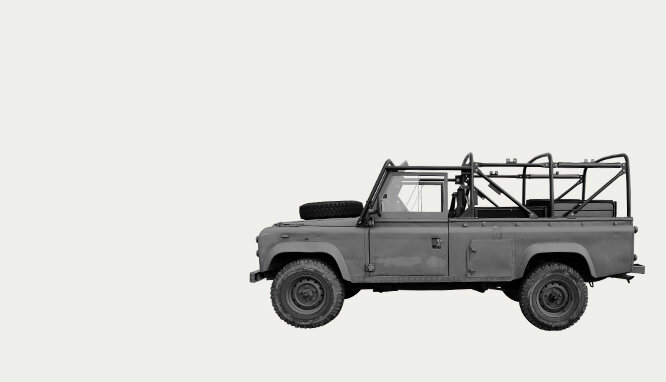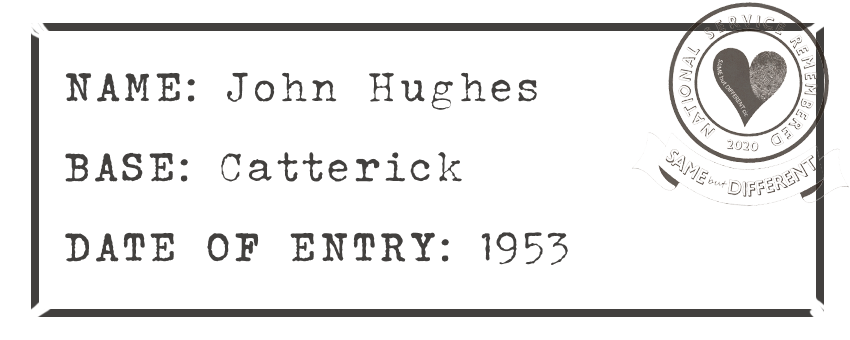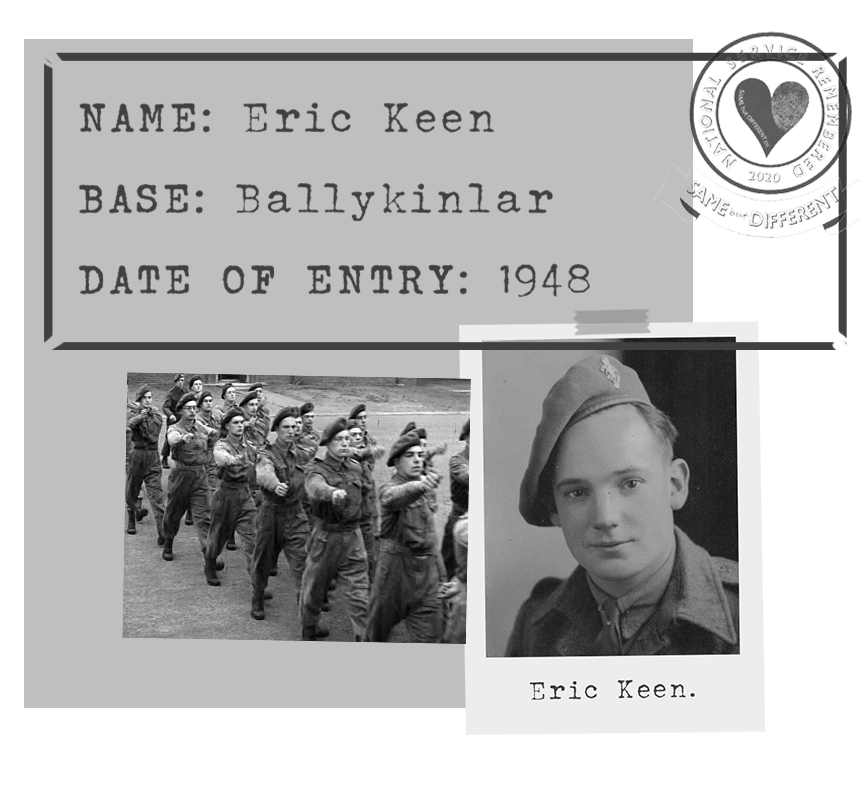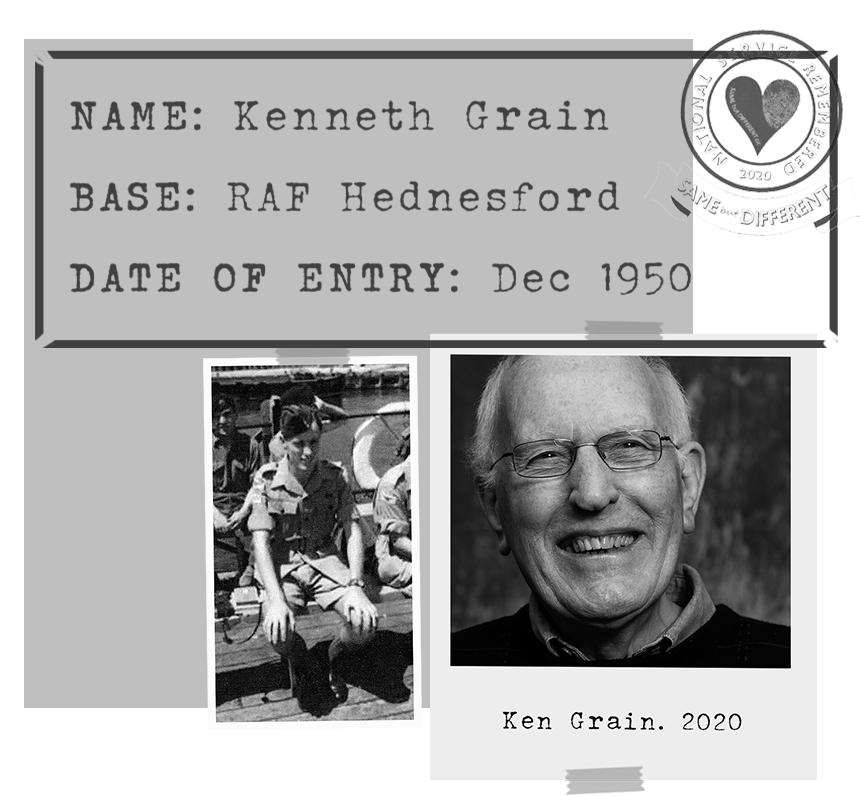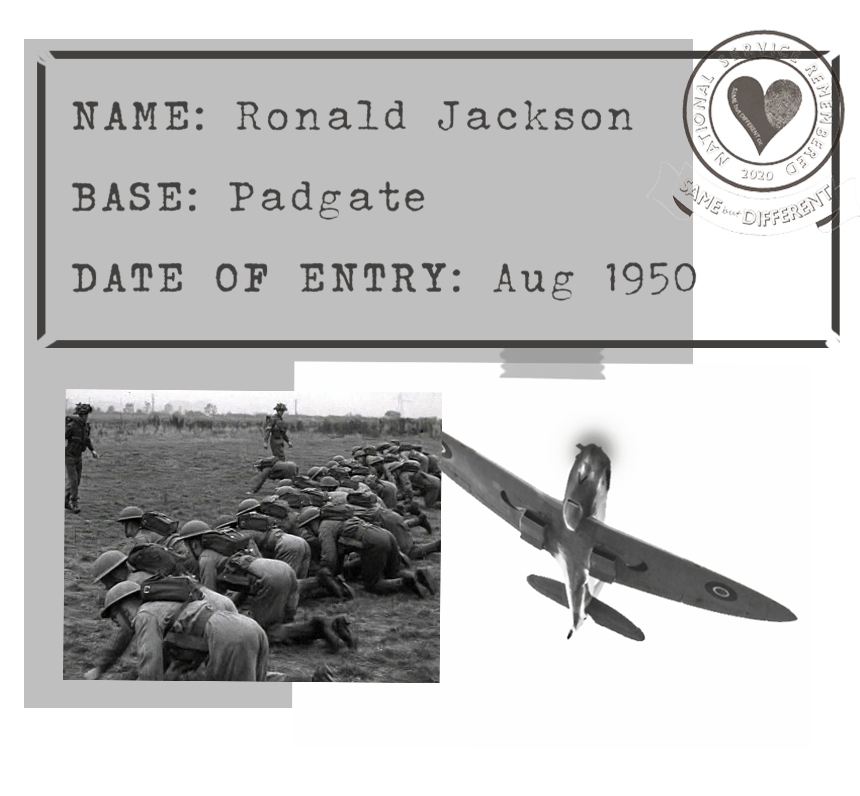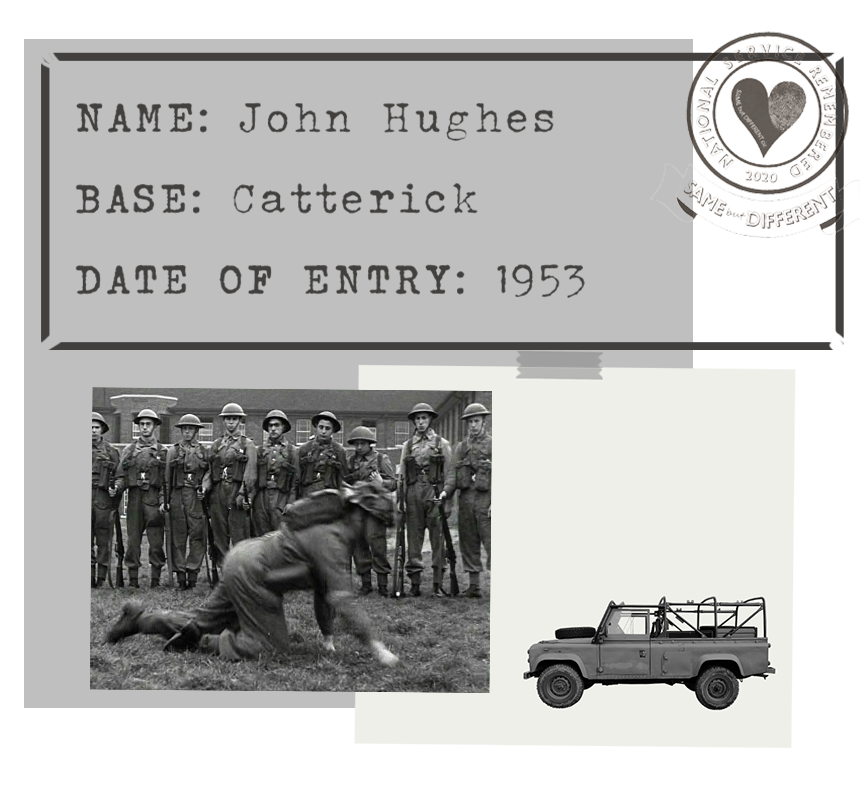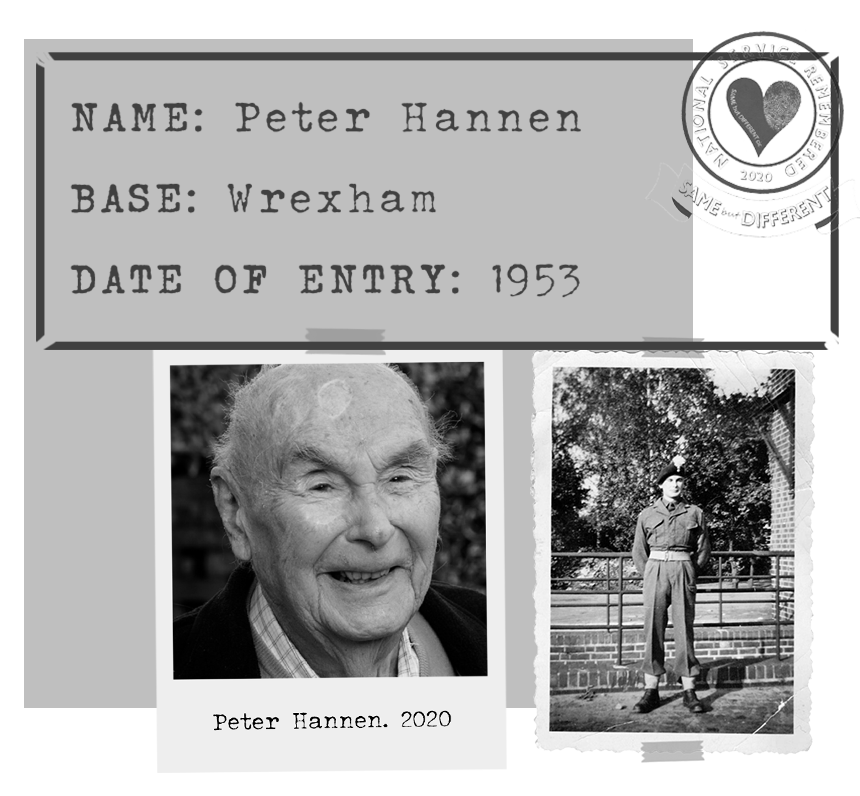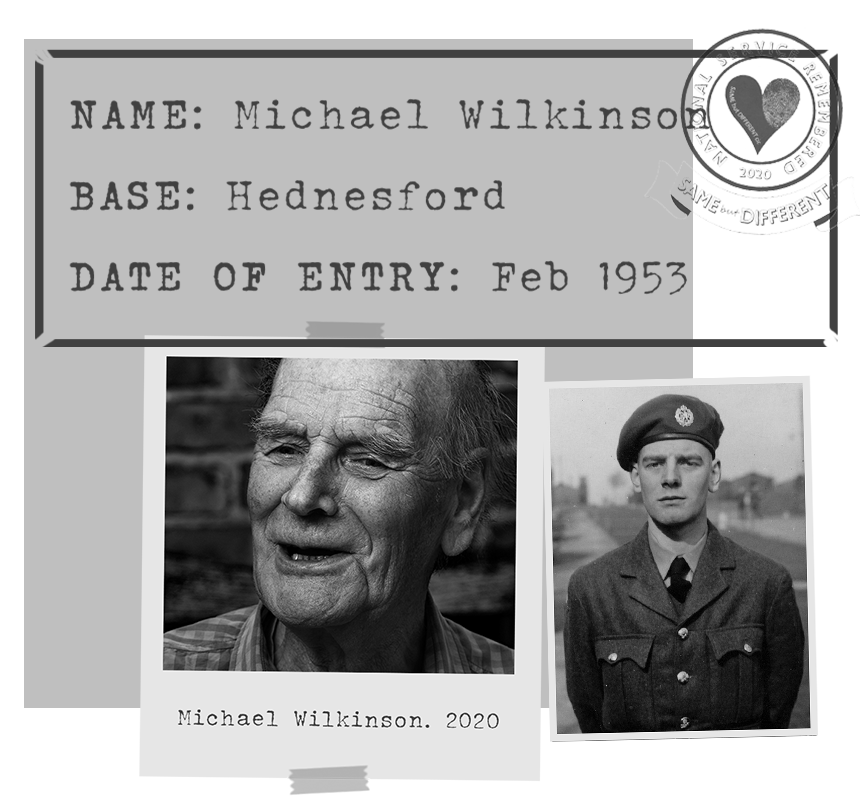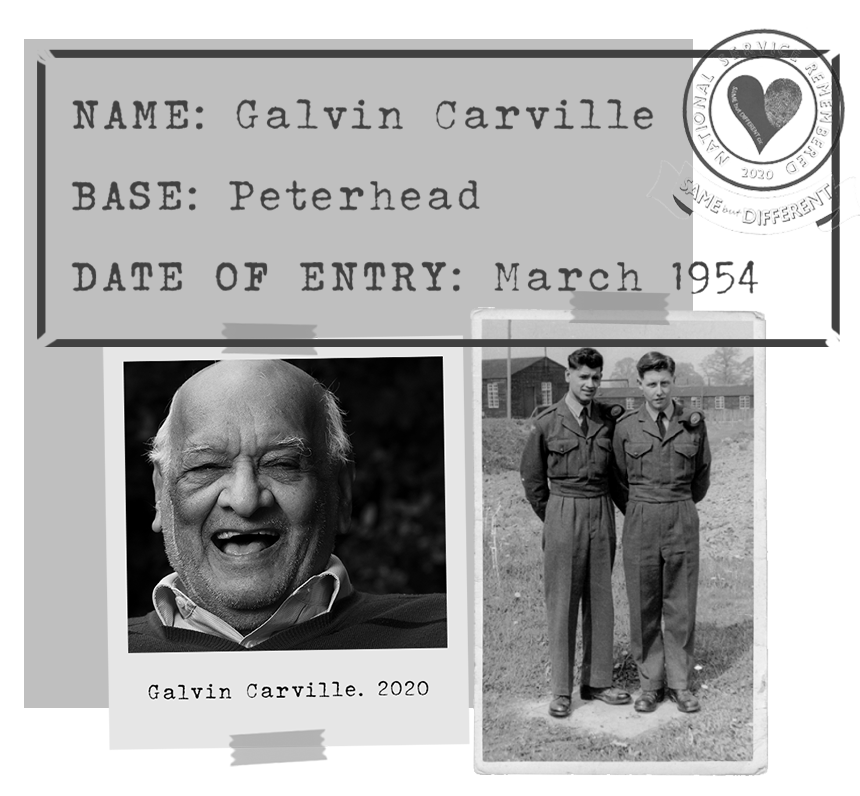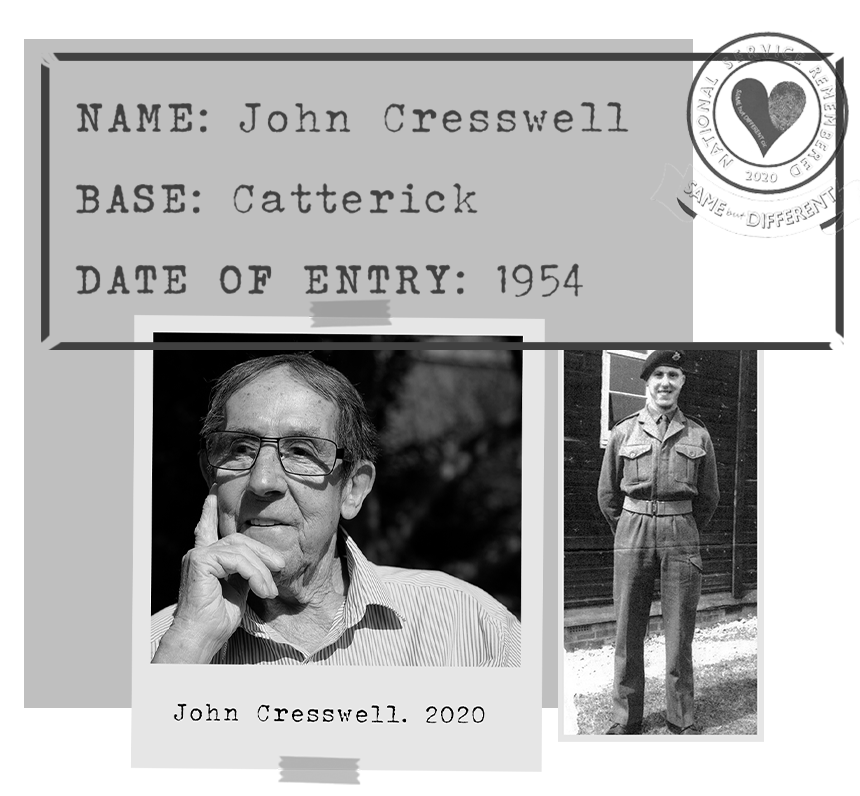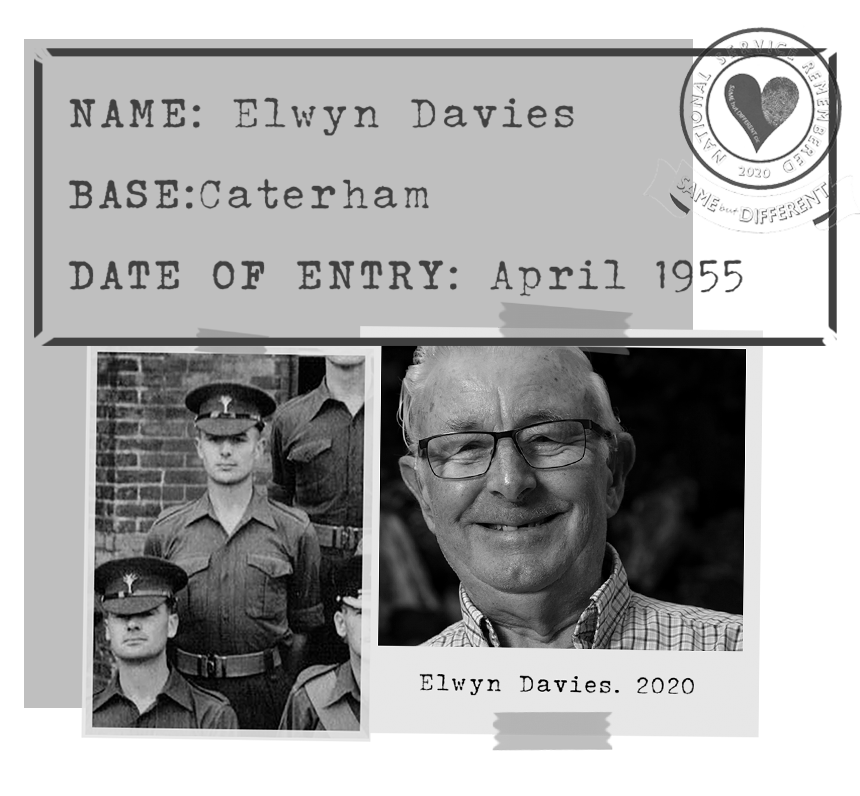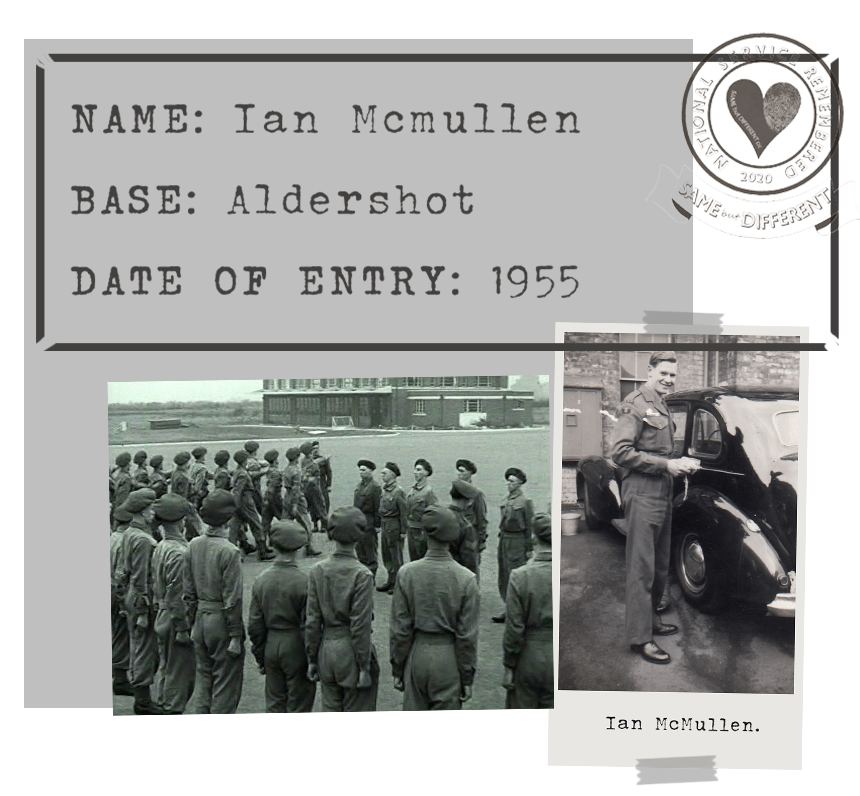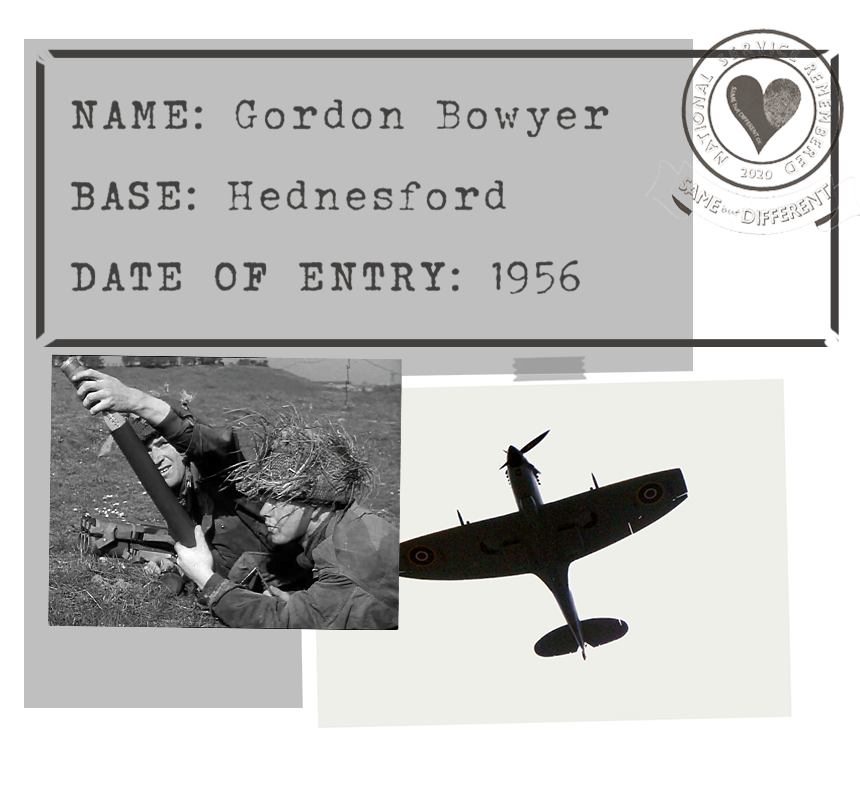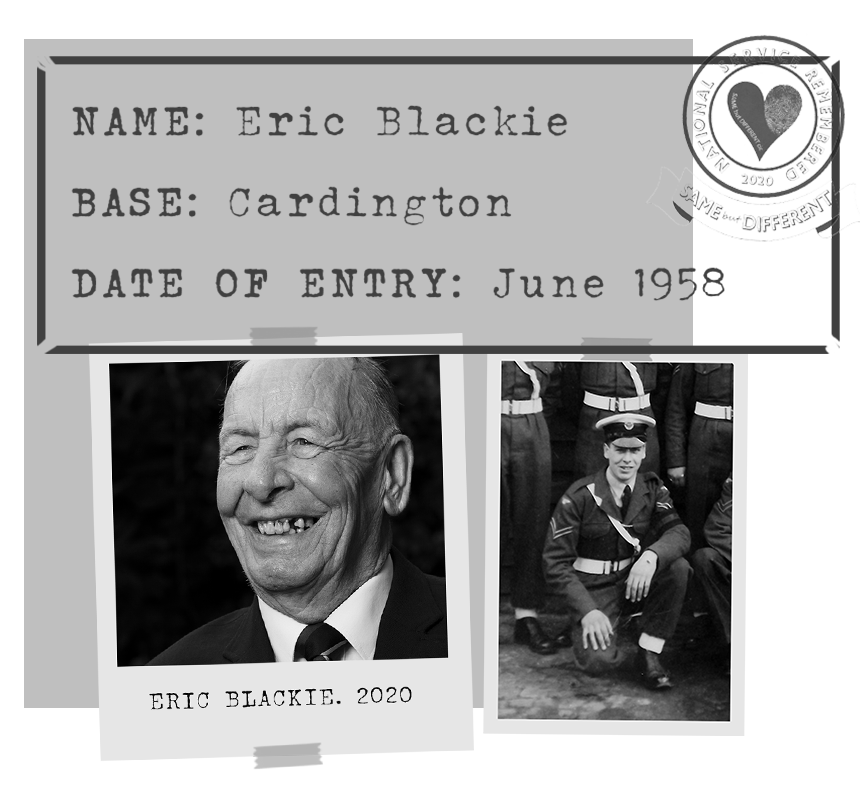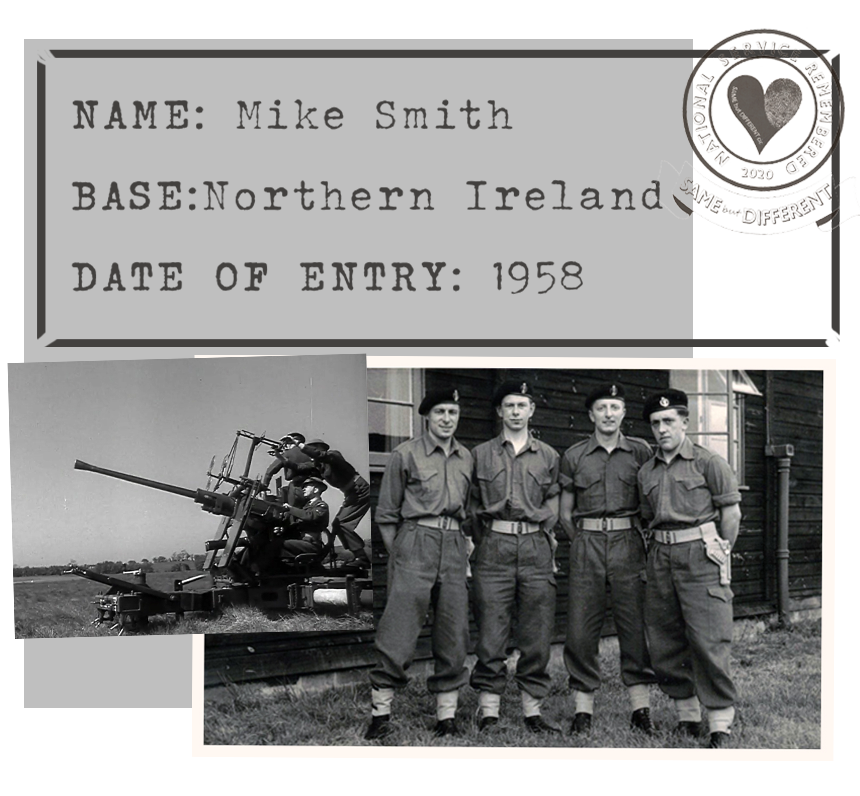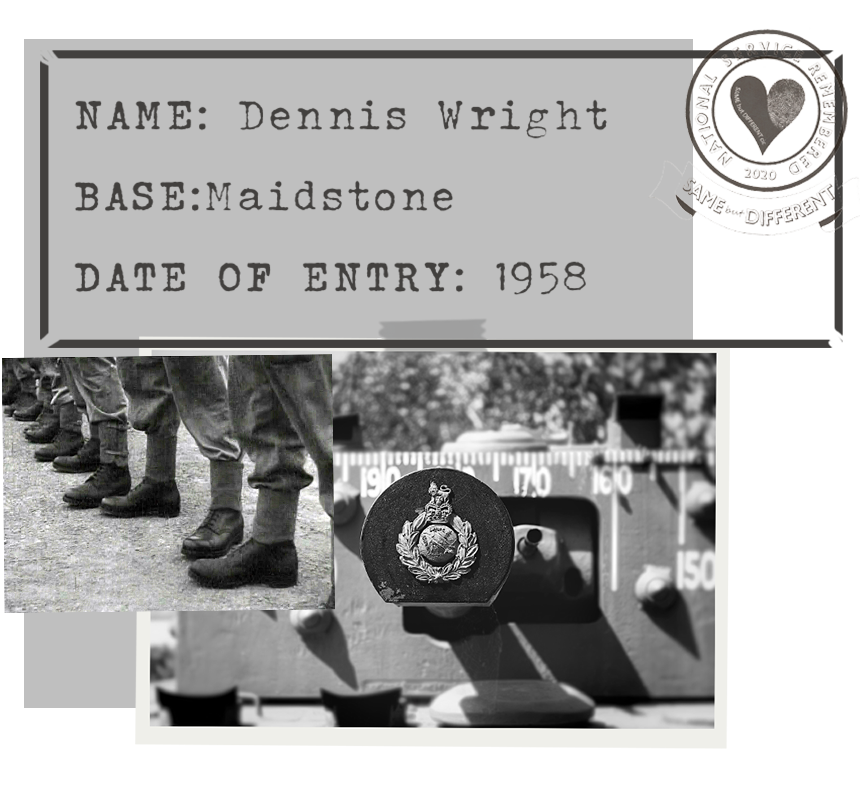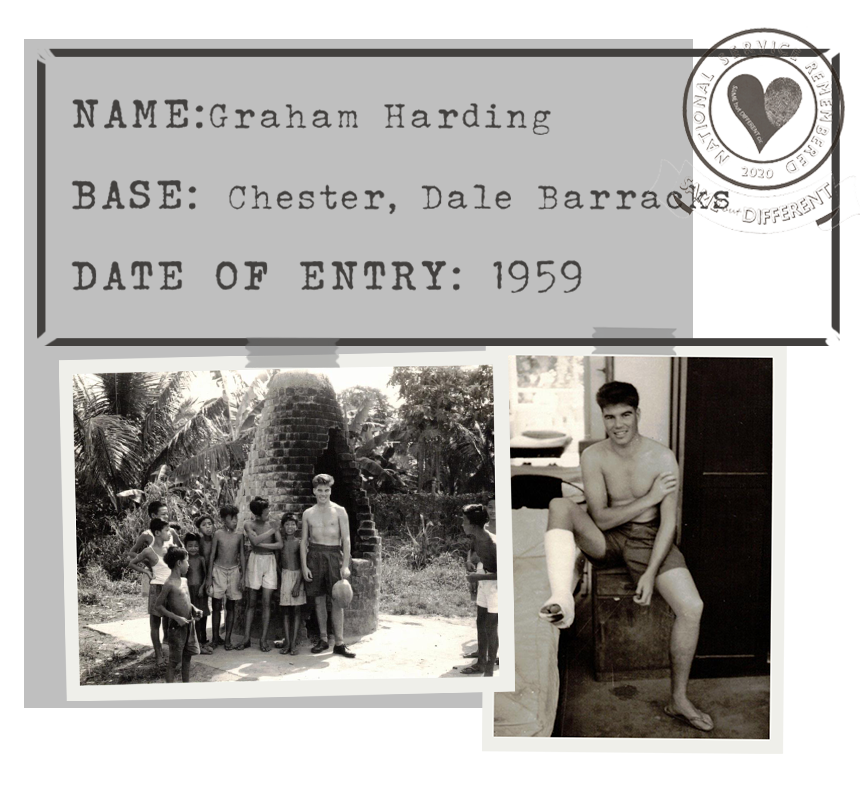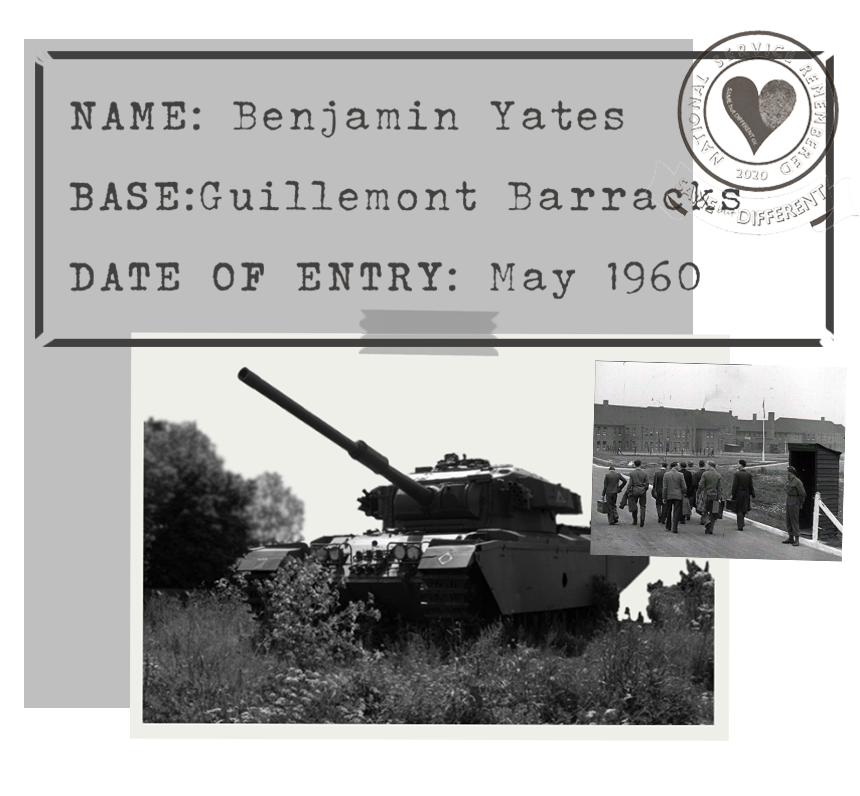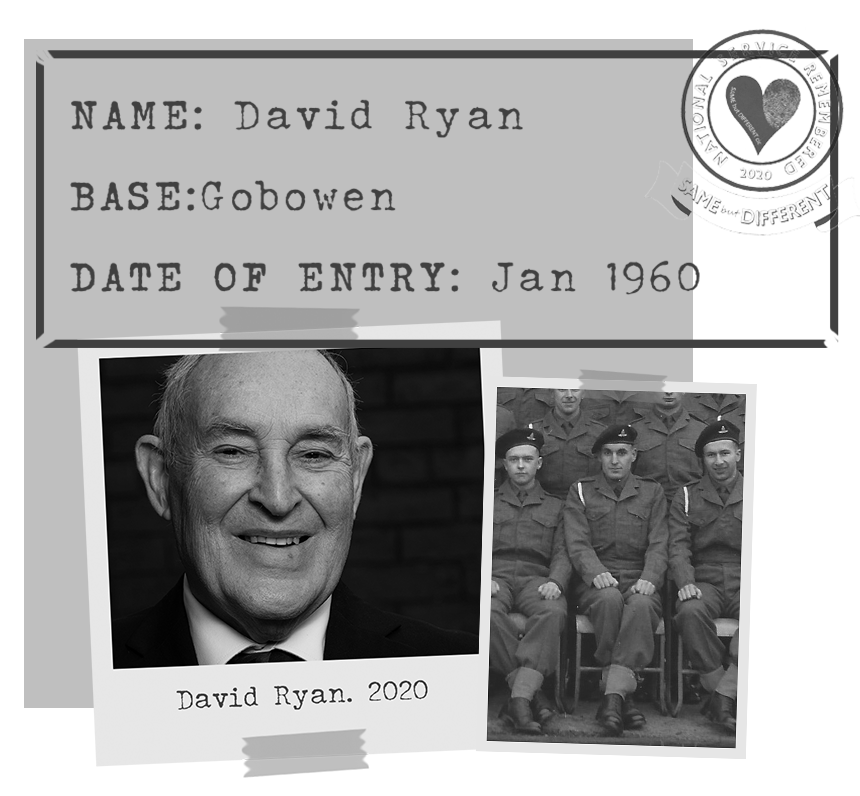“I wanted to do my National Service - my two brothers had been in and I just wanted to get out and travel a bit.”
I served my time from age 15-18 as an apprentice plasterer but I wasn’t happy on the job.
I was 18 in 1953, a week before the Queen’s coronation, when I was called up. I’m 85 now. I signed on to be a regular before I went in, so I could go to the regiment I wanted. I started out in 66 training regiment in Catterick camp, up in Yorkshire, to do my military training and to get my trade as a tank driver. We didn’t wear the tank badge, we wore the Royal Armoured Corp badge.
We did our training and then you were posted either to a cavalry regiment or to a tank regiment, and you had a choice in what you wanted to go to. It was the best time of my life. I wanted to do my National Service - my two brothers had been in and I just wanted to get out and travel a bit. The training was hard but I still felt that it was the best thing I did.
“I was 18 in 1953, a week before the Queen’s coronation, when I was called up. ”
I got posted out to Egypt and I arrived in the Suez Canal on the last day of 1953. We’d signed a treaty with the Egyptians that we’d pull out of there and for the first 6-9 months, we were on emergency call. Out there, my job was driving a soft vehicle. It was a Land Rover and we went out on night patrol, guarding the communication wires.
There was one incident, you might laugh at – I was taking an Officer out one day when he was on patrol, in this Land Rover, and we went from Shandor camp into a place called Fayid. As we drove down the road a donkey came into the road with an Egyptian gentleman on his back, but he didn’t stop and the donkey kissed the Officer. This Officer said to me, ‘I’ve never been kissed by a donkey before’.
When we did night patrol, guarding the communication cables, we were fully armoured with sten guns and bren guns.
The Egyptians would go and cut the wires so we would be called on the radio and we had to go and find out where they’d gone, to try and catch them, but you’d never catch them. There was one incident, with a young National Service lieutenant - the wire had been cut and there were sandal footmarks next to it. They made us all go into this village and the officer was pointing to the footmarks on the floor. Misunderstanding what he meant, the Egyptians went and fetched him a camel!
A few things I remember from the camp - there was an open air picture house with a little wall around it and you just sat inside. In the NAAFI, there was a Church of Scotland canteen and a Church of England canteen. It was alright there. Out in Egypt, you couldn’t relax as you were on duty all the time. We did lose some lads there actually, by the Egyptians, because they were in places they shouldn’t be. As you went along the road, there were different places you had to radio in to say where you were.
Another horrible thing that happened – in the British Army, they have a civilian inspection and they would all come to inspect the vehicles. It was our turn for an inspection and some of the lads were washing the tanks inside, using petrol. There were two lads in the turret when somebody said ‘start the engine up’. There was a big flash and they were burnt; they were buried within 3 hours.
When the Egyptians signed a treaty to pull out, we were allowed to go out of the camp.
One day, a coach load of us were taken into Cairo. We walked into the beautiful mosque where we had to take our shoes off, and I remember seeing all the gold, I’ll never forget that. After a tour of the museum, we went for a walk around a bazaar. I was looking around and the lads shouted ‘come on Taff, hurry up’. The young girl behind the counter in the bazaar said to me, ‘Siarad cymraeg?’ [do you speak welsh] and I said ‘yndw’ [yes]. She said ‘mae fy nhaid yn cadw siop yng Nghaernarfon’ [my grandfather keeps a shop in Caernarfon]. I couldn’t believe it!
And then, I’ve got a photograph taken of us all by the Sphinx with me on a camel and the pyramids behind us. I actually walked into a pyramid – you don’t walk down in a pyramid, you walk up. There was an Egyptian chap there and we had a Sergeant with us - he’d been out there in the war - but this Egyptian was making a bet with us - so many piastres says that he could run up and down this pyramid in x amount of minutes. So, we all gave him whatever it was, about 10 piastres, and this Sergeant said ‘he’ll do it, no problem’. The blocks of stone in the pyramids are about 5’ deep and this Egyptian was jumping up and down them, it was fantastic.
We had to do guards every other day as a lot of the security was closed down and after 9 months, the regiment, the 1st Royal Tank Regiment, came out of Egypt in 1955; I came on the advanced party. We then went to Tidworth and I was in B Squadron. My job there was driving the commanding officer around. B squadron went from there to the Infantry school in Warminster doing demonstration squadrons.
I left the army as I was courting but I’ve always regretted coming out.
I was very happy in the army. I always remember walking out of the barracks in Tidworth (B squadron were in Warminster but I had to go to Tidworth to get de-mobbed), I always remember walking out of the gate and getting on the bus and the conductor said to me ‘you’ve just finished? You’ll regret it’, and he was right. I left in July 1955.
I was in for 3 years altogether with the regulars and then 4 years on reserve where you get paid every 3 months on holding pay. I did that for 4 years from 1956 to 1960 and then I went to work in Hotpoint, went away to work down the coast. When I came back in 1970, I joined the TAs in Colwyn Bay.
If they brought National Service back for the young kids, it would do them the world of good. We used to have a saying, the Officer used to say ‘You can break your mother’s heart but you won’t break mine’ and the lads would write home saying ‘sell the pig mum and buy me out’ and the mother would write back saying ‘soldier on son, the pig is dead’.
I ended up lorry driving until I retired.


